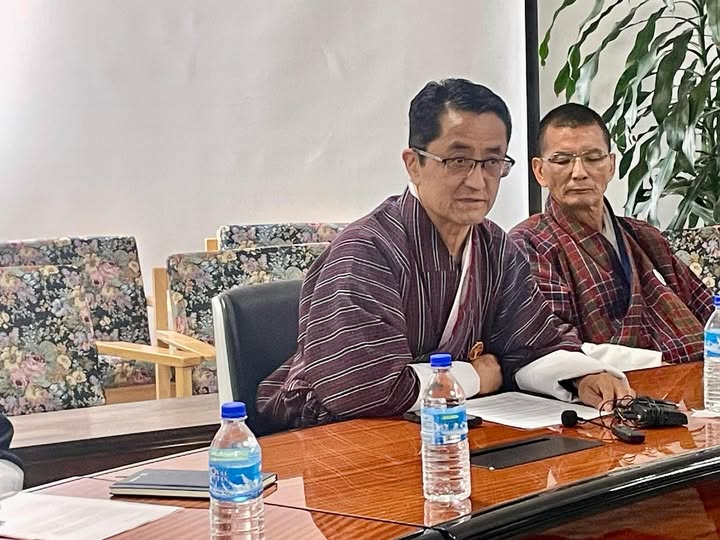
NGAWANG JAMPHEL
Thimphu
In response to growing concerns over food inflation, the Secretary of Agriculture and Livestock (MoAL) Thinley Namgyel has shared detailed strategies being taken by the ministry to ease the burden on Bhutanese consumers during the 14th meet the press session held on 1 April.
The secretary stated that the ministry’s main objective is to achieve food and nutrition security across the country. To do so, the Ministry is focusing on increasing affordable domestic food production, which is seen as a long-term solution to manage inflation and reduce dependency on imports.
As part of the 13th Five-Year Plan (FYP), the Ministry has set ambitious targets to raise production levels of key food commodities. For example, paddy production is expected to increase from 40,000 metric tons (MT) to 54,000 MT, maize from 25,000 MT to 32,000 MT, chili from 4,800 MT to 7,600 MT, and potato from 38,000 MT to 44,000 MT. The production of milk is targeted to grow from 44,000 MT to 74,000 MT, and eggs from 86 million to 174 million.
Similar targets have been set for other agricultural and livestock products. These goals are aimed at ensuring that food is not only available but also affordable to every Bhutanese household.
The minister explained that food inflation is a complex issue, influenced by many national and international factors. Bhutan depends heavily on food imports, especially from India, where around 70–75% of rice is sourced. When prices in India rise due to higher input costs like fuel and fertilizer or due to climate-related poor harvests, the cost of food in Bhutan also goes up.
For instance, a poor onion harvest in India has previously led to a spike in onion prices in Bhutan. Similarly, diseases like African Swine Fever have disrupted pork imports, leading to a rise in pork prices. These examples show that food inflation in Bhutan is not just a result of domestic challenges but also global trends and events.
To address these challenges, the Ministry is working to create an enabling environment through investments, infrastructure development, and policy support. One of the key measures is to reduce production costs through input subsidies. Under the cost-sharing mechanism, the Ministry provides seeds, seedlings, chain link fences, greenhouses, value-addition technologies, and various types of support to the livestock sector. These inputs help farmers produce more efficiently and affordably.
Another important step is farm mechanization. The secretary highlighted that labor costs make up nearly 70% of total production expenses. To reduce this, the Ministry continues to support the use of machines and modern tools in farming, which helps lower costs and increase productivity. Mechanization is a priority in the 13th FYP, especially to encourage young farmers and reduce dependence on manual labor.
The secretary also pointed out the importance of strengthening market infrastructure and logistics. Due to Bhutan’s mountainous terrain and scattered farms, transporting goods from farms to markets is costly and difficult.
To solve this, the Ministry is investing in cold storage facilities to reduce post-harvest losses, warehouses and agro-processing centers to add value to products, and integrated supply chain systems to ensure efficient farm-to-market connections.
Modern marketing methods are also being introduced. The Ministry is promoting digital platforms for online agricultural sales and strengthening cooperative-based marketing initiatives. This helps farmers sell their produce directly to customers and reduces the role of middlemen, making food cheaper for consumers.
Lastly, the Ministry is ensuring that farmers have access to affordable credit. Through programs like the Economic Stimulus Plan (ESP), the government is helping farmers invest in their farms and expand production without being burdened by high interest rates. By making credit accessible, the Ministry hopes to support more farmers in becoming self-reliant and productive.
The secretary emphasized that while food inflation is a complex and multi-sectoral issue, the Ministry is doing its part by increasing local food production, lowering production costs, improving infrastructure, and supporting farmers with technology and finance.
The secretary noted that managing food inflation requires the cooperation of multiple agencies, but with these interventions, the Ministry is confident that it can play a major role in reducing the impact of rising food prices on Bhutanese citizens.




